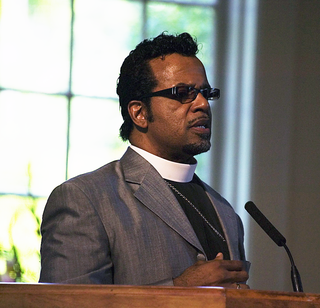A Quote by Norman Geisler
While many have doubted the accuracy of the Bible, time and continued research have consistently demonstrated that the Word of God is better informed than its critics. In fact, while thousands of finds from the ancient world support in broad outline and often in detail the biblical picture, not one incontrovertible find has ever contradicted the Bible.
Related Quotes
The Bible is an ancient text from an ancient context. We live thousands of miles and thousands of years away from that context, which also represents different cultures. Archaeology is a modern means of revealing both the lost record of the ancient world, and the historical and social world of the Bible. While the purpose of archaeology is not to prove the historicity of the people and events recorded in Scripture, it can help immeasurably to confirm the historical reality and accuracy of the Bible and to demonstrate that faith has a factual foundation.
We, including many Christians, read the Bible through "eyes" conditioned by, and even accommodated to, modern Western culture plus the influences of messages and ideas from other cultures that are alien to the worldview of the biblical writers. Therefore, in order fully to understand the Bible and allow the Bible to absorb the world (rather than the world - culture - absorb the Bible) we must practice an "archaeology" of the biblical writers' implicit, assumed view of reality.
"Biblical theology" refers to something more precise than theology that is faithful to the Bible. It might be helpful to draw a contrast: at the risk of oversimplification, systematic theology tends to organize theology topically and with an eye cast on its contemporary relevance, while biblical theology tends to organize the same biblical material so that it is easier to see the distinctive contribution of each biblical book and human author, and to trace the trajectories of themes across the Bible so we see how the books of the Bible hold together.
Sad, indeed, would the whole matter be if the Bible had told us everything God meant us to believe. But herein is the Bible greatly wronged. It nowhere lays claim to be regarded as the Word, the Way, the Truth. The Bible leads us to Jesus, the inexhaustible, the ever-unfolding Revelation of God. It is Christ "in whom are hid all the treasures of wisdom and knowledge," not the Bible, save as leading to Him.
We are not to make the Torah into God Himself, nor the Bible into a "paper pope." The Bible is only the result of the Word of God. We can experience the return of the Word of God in the here and now, the perpetual return of the actual, living, indisputable Word of God that makes possible the act of witnessing, but we should never think of the Bible as any sort of talisman or oracle constantly at our disposal that we need only open and read to be in relation to the Word of God and God Himself.
The Christians and the Jews do not believe that the Bible is the verbatim words of God. In fact it is clear that the books of the Bible are written by men - allegedly inspired men - but humans nonetheless. God in the Bible is spoken of in third person. This gives the believer a degree of caution. If the writers of the Bible were humans and humans are fallible, the Bible should not be taken literally. It is possible to interpret it, use one's logic to understand it in the light of science and adapt its teachings to meet the needs of the time.
I let go of the notion that the Bible is a divine product. I learned that it is a human cultural product, the product of two ancient communities, biblical Israel and early Christianity. As such, it contained their understandings and affirmations, not statements coming directly or somewhat directly from God. . . . I realized that whatever "divine revelation" and the "inspiration of the Bible" meant (if they meant anything), they did not mean that the Bible was a divine product with divine authority.






































